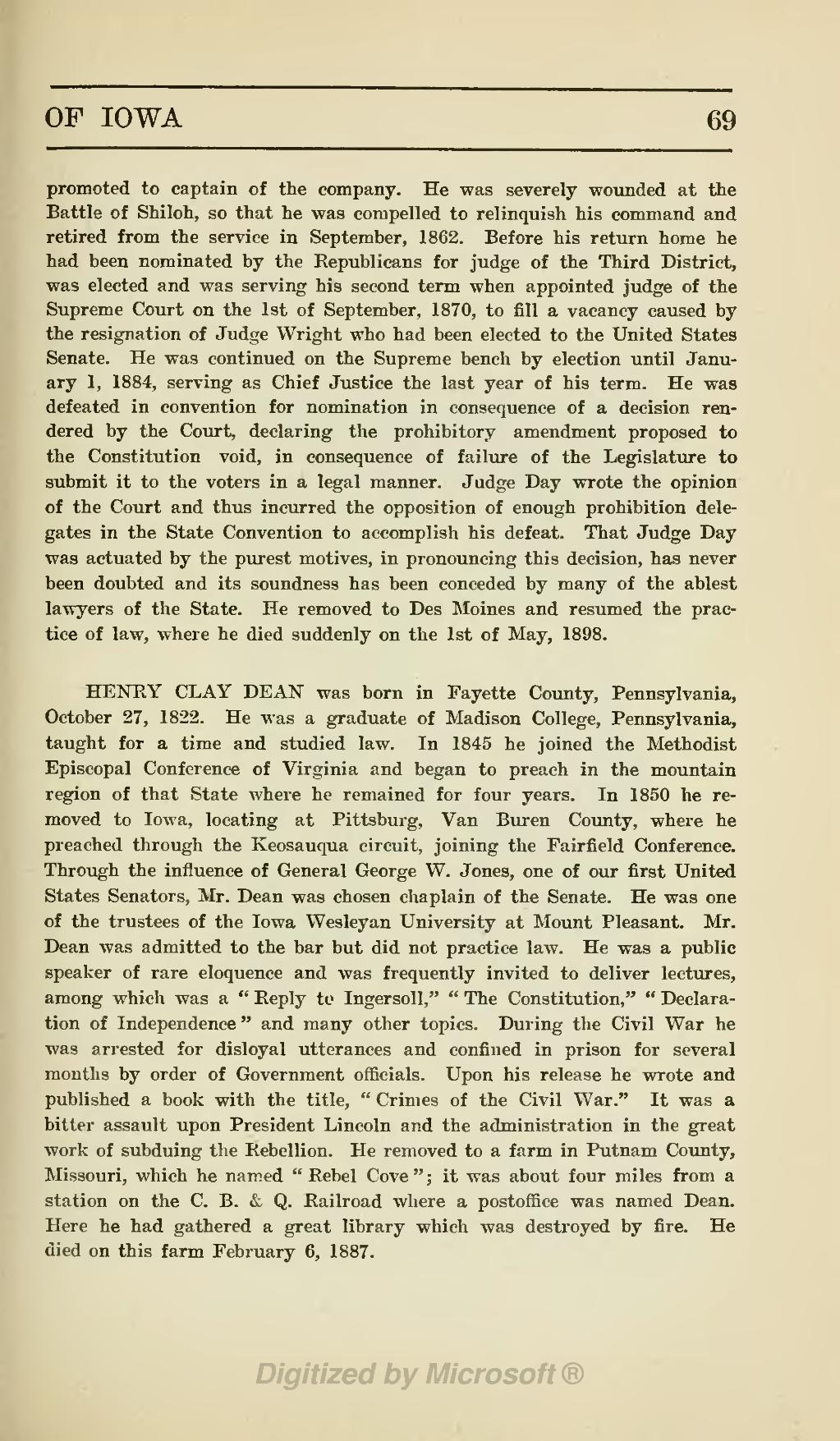promoted to captain of the company. He was severely wounded at the Battle of Shiloh, so that he was compelled to relinquish his command and retired from the service in September, 1862. Before his return home he had been nominated by the Republicans for judge of the Third District, was elected and was serving his second term when appointed judge of the Supreme Court on the 1st of September, 1870, to fill a vacancy caused by the resignation of Judge Wright who had been elected to the United States Senate. He was continued on the Supreme bench by election until January 1, 1884, serving as Chief Justice the last year of his term. He was defeated in convention for nomination in consequence of a decision rendered by the Court, declaring the prohibitory amendment proposed to the Constitution void, in consequence of failure of the Legislature to submit it to the voters in a legal manner. Judge Day wrote the opinion of the Court and thus incurred the opposition of enough prohibition delegates in the State Convention to accomplish his defeat. That Judge Day was actuated by the purest motives, in pronouncing this decision, has never been doubted and its soundness has been conceded by many of the ablest lawyers of the State. He removed to Des Moines and resumed the practice of law, where he died suddenly on the 1st of May, 1898.
HENRY CLAY DEAN was born in Fayette County, Pennsylvania, October 27, 1822. He was a graduate of Madison College, Pennsylvania, taught for a time and studied law. In 1845 he joined the Methodist Episcopal Conference of Virginia and began to preach in the mountain region of that State where he remained for four years. In 1850 he removed to Iowa, locating at Pittsburg, Van Buren County, where he preached through the Keosauqua circuit, joining the Fairfield Conference. Through the influence of General George W. Jones, one of our first United States Senators, Mr. Dean was chosen chaplain of the Senate. He was one of the trustees of the Iowa Wesleyan University at Mount Pleasant. Mr. Dean was admitted to the bar but did not practice law. He was a public speaker of rare eloquence and was frequently invited to deliver lectures, among which was a “Reply to Ingersoll,” “The Constitution,” “Declaration of Independence” and many other topics. During the Civil War he was arrested for disloyal utterances and confined in prison for several months by order of Government officials. Upon his release he wrote and published a book with the title, “Crimes of the Civil War.” It was a bitter assault upon President Lincoln and the administration in the great work of subduing the Rebellion. He removed to a farm in Putnam County, Missouri, which he named “Rebel Cove”; it was about four miles from a station on the C. B. & Q. Railroad where a postoffice was named Dean. Here he had gathered a great library which was destroyed by fire. He died on this farm February 6, 1887.
